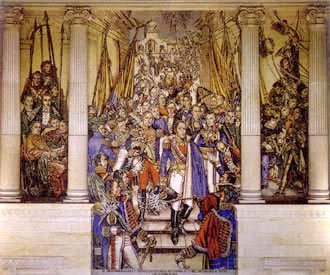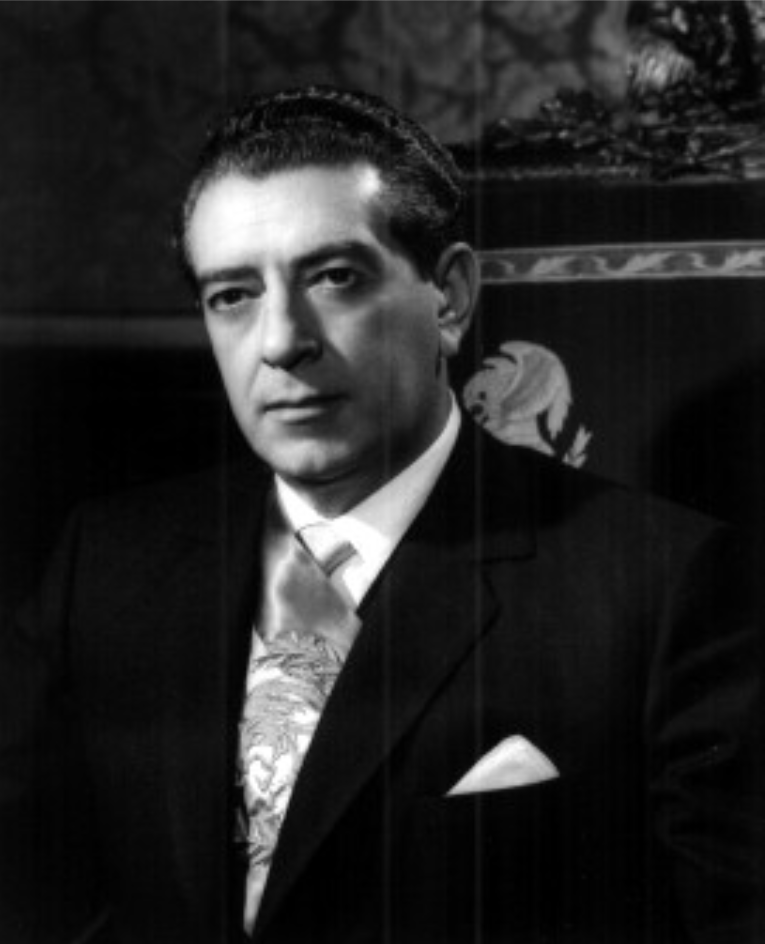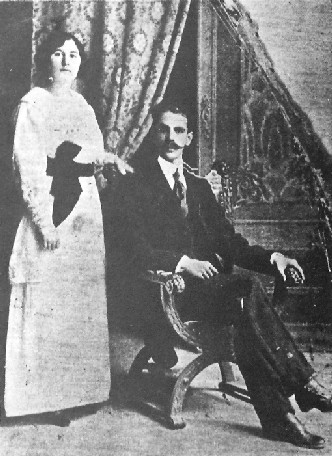|
Mexico–Venezuela Relations
The nations of Mexico and Venezuela established diplomatic relations in 1831, however, diplomatic relations between both nations have been historically unstable on several occasions. During the Venezuelan presidential crisis, Mexico took a neutral position and has continued to maintain diplomatic relations with the government of President Nicolás Maduro. Both nations are members of the Association of Caribbean States, Community of Latin American and Caribbean States, Latin American Integration Association, Organization of American States, Organization of Ibero-American States and the United Nations. History Relations from Spanish colonization to the 1990s Both Mexico and Venezuela share a common history in the fact that both nations were once part of the Spanish Empire. During the Spanish colonial period, Mexico was then known as Viceroyalty of New Spain and the capital being Mexico City while what became nowadays Venezuela was known then as the Captaincy General of Venezuela ... [...More Info...] [...Related Items...] OR: [Wikipedia] [Google] [Baidu] |
Mexico
Mexico (Spanish: México), officially the United Mexican States, is a country in the southern portion of North America. It is bordered to the north by the United States; to the south and west by the Pacific Ocean; to the southeast by Guatemala, Belize, and the Caribbean Sea; and to the east by the Gulf of Mexico. Mexico covers ,Mexico ''''. . making it the world's 13th-largest country by are ... [...More Info...] [...Related Items...] OR: [Wikipedia] [Google] [Baidu] |
Gran Colombia
Gran Colombia (, "Great Colombia"), or Greater Colombia, officially the Republic of Colombia (Spanish: ''República de Colombia''), was a state that encompassed much of northern South America and part of southern Central America from 1819 to 1831. It included present-day Colombia, mainland Ecuador (i.e. excluding the Galápagos Islands), Panama, and Venezuela, along with parts of northern Peru, northwestern Brazil, and Part of Guyana. The terms Gran Colombia and Greater Colombia are used historiographically to distinguish it from the current Republic of Colombia, which is also the official name of the former state. However, international recognition of the legitimacy of the Gran Colombian state ran afoul of European opposition to the independence of states in the Americas. Austria, France, and Russia only recognized independence in the Americas if the new states accepted monarchs from European dynasties. In addition, Colombia and the international powers disagreed over the exte ... [...More Info...] [...Related Items...] OR: [Wikipedia] [Google] [Baidu] |
G3 Free Trade Agreement
The G-3 was a free trade agreement between Colombia, Mexico, and Venezuela that came into effect on January 1, 1995, which created an extended market of 149 million consumers with a combined GDP (Gross domestic product) of US$486.5 billion. The agreement states a ten percent tariff reduction over ten years (starting in 1995) for the trade of goods and services among its members. The agreement is a third generation one, not limited to liberalizing trade, but includes issues such as investment, services, government purchases, regulations to fight unfair competition, and intellectual property rights. Venezuelan President Hugo Chávez announced in May 2006 that his country would withdraw from the trade bloc, due to differences with its two partners. In April, Venezuela had also announced its plans to leave the Andean Community, after Colombia and Peru reached free trade agreements with the United States and Ecuador kept in negotiations for one. Venezuela then joined Mercosur, while ... [...More Info...] [...Related Items...] OR: [Wikipedia] [Google] [Baidu] |
Adolfo López Mateos
Adolfo López Mateos (; 26 May 1909 – 22 September 1969) was a Mexican politician who served as President of Mexico from 1958 to 1964. Beginning his political career as a campaign aide of José Vasconcelos during his run for president, López Mateos encountered repression from Plutarco Elías Calles, who attempted to maintain hegemony within the National Revolutionary Party (PNR). He briefly abandoned politics and worked as a professor at the Autonomous University of Mexico State, becoming a member of the PNR (renamed Party of the Mexican Revolution) in 1941. López Mateos served as senator for the State of Mexico from 1946 to 1952 and Secretary of Labor during the administration of Adolfo Ruiz Cortines from 1952 to 1957. He secured the party's presidential nomination and won in the 1958 general election. Declaring his political philosophy to be "left within the Constitution", López Mateos was the first self-declared left-wing politician to hold the presidency since Láza ... [...More Info...] [...Related Items...] OR: [Wikipedia] [Google] [Baidu] |
Juan Pablo Perez Alfonso
''Juan'' is a given name, the Spanish and Manx versions of '' John''. It is very common in Spain and in other Spanish-speaking communities around the world and in the Philippines, and also (pronounced differently) in the Isle of Man. In Spanish, the diminutive form (equivalent to ''Johnny'') is , with feminine form (comparable to ''Jane'', ''Joan'', or ''Joanna'') , and feminine diminutive (equivalent to ''Janet'', ''Janey'', ''Joanie'', etc.). Chinese terms * ( or 娟, 隽) 'beautiful, graceful' is a common given name for Chinese women. * () The Chinese character 卷, which in Mandarin is almost homophonic with the characters for the female name, is a division of a traditional Chinese manuscript or book and can be translated as 'fascicle', 'scroll', 'chapter', or 'volume'. Notable people * Juan (footballer, born 1979), Brazilian footballer * Juan (footballer, born 1982), Brazilian footballer * Juan (footballer, born March 2002), Brazilian footballer * Juan (footbal ... [...More Info...] [...Related Items...] OR: [Wikipedia] [Google] [Baidu] |
OPEC
The Organization of the Petroleum Exporting Countries (OPEC, ) is a cartel of countries. Founded on 14 September 1960 in Baghdad by the first five members (Iran, Iraq, Kuwait, Saudi Arabia, and Venezuela), it has, since 1965, been headquartered in Vienna, Austria, although Austria is not an OPEC member state. , the 13 member countries accounted for an estimated 44 percent of global oil production and 81.5 % of the world's proven oil reserves, giving OPEC a major influence on global oil prices that were previously determined by the so-called " Seven Sisters" grouping of multinational oil companies. The formation of OPEC marked a turning point toward national sovereignty over natural resources, and OPEC decisions have come to play a prominent role in the global oil market and international relations. The effect can be particularly strong when wars or civil disorders lead to extended interruptions in supply. In the 1970s, restrictions in oil production led to a dramatic r ... [...More Info...] [...Related Items...] OR: [Wikipedia] [Google] [Baidu] |
Andrés Eloy Blanco
Andrés Eloy Blanco Meaño (6 August 1896 – 21 May 1955) was a noted Venezuelan poet and politician. He was a member of the ''Generación del 28'', and one of the founders of Acción Democrática (AD). He was Minister of Foreign Affairs of Venezuela from 15 February 1948 until 24 November 1948. Biography He was born in Cumaná, Sucre state, Venezuela, 6 August 1896. Blanco's family settled on Margarita Island, (Nueva Esparta State) where he lived part of his childhood. Until he moved to Caracas to attend classes at Universidad Central de Venezuela. He earned his first award in 1918 by writing the pastoral poem ''Canto a la Espiga y al Arado'', and released his first drama play, ''El Huerto de la Epopeya''. That year he was put in jail by protesting against the government. In 1923 got his first prize at the ''Juegos Florales'' (Floral Games) in Santander, Cantabria, Spain with the poem '' Canto a España'' (A Song to Spain). He traveled to Spain to receive the reward and st ... [...More Info...] [...Related Items...] OR: [Wikipedia] [Google] [Baidu] |
Rómulo Gallegos
Rómulo Ángel del Monte Carmelo Gallegos Freire (2 August 1884 – 5 April 1969) was a Venezuelan novelist and politician. For a period of nine months during 1948, he governed as the first freely elected president in Venezuela's history. He was removed from power by military officers in the 1948 Venezuelan coup. Rómulo Gallegos is considered the most relevant Venezuelan novelist of the 20th century, and a prominent figure in Latin American literature. Early life and writings Rómulo Gallegos was born in Caracas to Rómulo Gallegos Osío and Rita Freire Guruceaga, into a family of humble origin. He began his work as a schoolteacher, writer, classical music enthusiast, and journalist in 1903. His novel '' Doña Bárbara'' was first published in 1929, and it was because of the book's criticisms of the regime of longtime dictator Juan Vicente Gómez that he was forced to flee the country. He took refuge in Spain, where he continued to write: his acclaimed novels ''Cantaclaro'' (1 ... [...More Info...] [...Related Items...] OR: [Wikipedia] [Google] [Baidu] |
Marcos Pérez Jiménez
Marcos Evangelista Pérez Jiménez (25 April 1914 – 20 September 2001) was a Venezuelan military and general officer of the Army of Venezuela and the dictator of Venezuela from 1950 to 1958, ruling as member of the military junta from 1950 to 1952 and as president from 1952 to 1958. He took part in the 1948 coup d'état, becoming part of the ruling junta. He ran in the 1952 election. However, the junta cancelled the election when early results indicated that the opposition was ahead, and declared Jiménez provisional president. He became president in 1953 and instituted a constitution that granted him dictatorial powers. Under Pérez's rule, the rise of oil prices facilitated many public works projects, including roads, bridges, government buildings and public housing, as well as the rapid development of industries such as hydroelectricity, mining, and steel. The economy of Venezuela developed rapidly while Pérez was in power. On the other hand, Pérez presided over on ... [...More Info...] [...Related Items...] OR: [Wikipedia] [Google] [Baidu] |
1948 Venezuelan Coup D'état
The 1948 Venezuelan coup d'état took place on 24 November 1948, when Carlos Delgado Chalbaud, Marcos Pérez Jiménez and Luis Felipe Llovera Páez overthrew the elected president, Rómulo Gallegos, who had been elected in the 1947 Venezuelan general election (generally believed to be the country's first honest election) and had taken office in February 1948. Chalbaud had been Gallegos' minister of defense. Jiménez took command of the country as its dictator. Democracy would not be restored until the 1958 Venezuelan coup d'état overthrew Jiménez. References Venezuela Coup d'état A coup d'état (; French for 'stroke of state'), also known as a coup or overthrow, is a seizure and removal of a government and its powers. Typically, it is an illegal seizure of power by a political faction, politician, cult, rebel group, m ... Military coups in Venezuela Conflicts in 1948 November 1948 events in South America {{venezuela-mil-stub ... [...More Info...] [...Related Items...] OR: [Wikipedia] [Google] [Baidu] |
Rómulo Betancourt
Rómulo Ernesto Betancourt Bello (22 February 1908 – 28 September 1981; ), known as "The Father of Venezuelan Democracy", was the president of Venezuela, serving from 1945 to 1948 and again from 1959 to 1964, as well as leader of Acción Democrática, Venezuela's dominant political party in the 20th century. Betancourt, one of Venezuela's most important political figures, led a tumultuous career in Latin American politics. Periods of exile brought Betancourt in contact with various Latin American countries as well as the United States, securing his legacy as one of the most prominent international leaders to emerge from 20th-century Latin America. Scholars credit Betancourt as the Founding Father of modern democratic Venezuela. Early years Betancourt was born in Guatire, a town near Caracas. His parents were Luis Betancourt Bello (of Canary origins) and Virginia Bello Milano. He attended a private school in Guatire, followed by high school at the ''Liceo Caracas'' in Ca ... [...More Info...] [...Related Items...] OR: [Wikipedia] [Google] [Baidu] |
United States
The United States of America (U.S.A. or USA), commonly known as the United States (U.S. or US) or America, is a country primarily located in North America. It consists of 50 states, a federal district, five major unincorporated territories, nine Minor Outlying Islands, and 326 Indian reservations. The United States is also in free association with three Pacific Island sovereign states: the Federated States of Micronesia, the Marshall Islands, and the Republic of Palau. It is the world's third-largest country by both land and total area. It shares land borders with Canada to its north and with Mexico to its south and has maritime borders with the Bahamas, Cuba, Russia, and other nations. With a population of over 333 million, it is the most populous country in the Americas and the third most populous in the world. The national capital of the United States is Washington, D.C. and its most populous city and principal financial center is New York City. Paleo-Americ ... [...More Info...] [...Related Items...] OR: [Wikipedia] [Google] [Baidu] |



.jpg)


